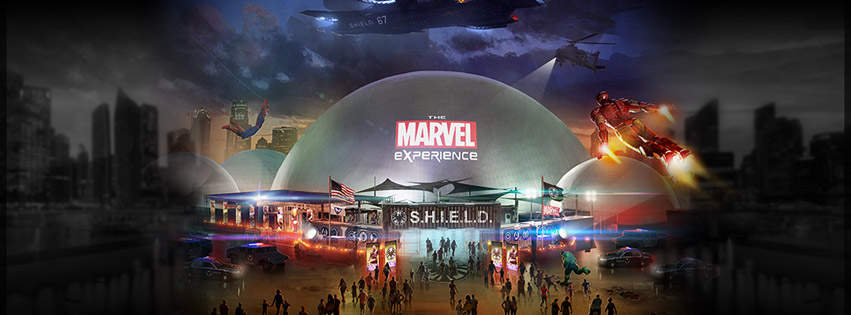Close Encounter of the Third Kind with Google Glass, Part 2
This is Part 2 of the log I’m keeping about Google Glass. Click here to read Part 1.
Captain’s Log No. 3
Google Glass travels from Portland, Oregon, to Buckhorn, California. Remote home in Sierra Nevada mountain range has no cell phone service. Relied on cable Wi-Fi router in the house; device paired with smartphone using Wi-Fi. Google Gmail account and GLASS mobile app required.
Preferring a single name like other celebrities, glass (lower case) loaned to 16-year old nephew and his friend.
“Cool” and “I might need my dad to buy me one of these.”
Michael and Tommy figured out how to use glass in less than 20 minutes. Would have been faster but they were distracted by a re-run of The Shining on television. Irony or…?
Instructions to the teens included:
1 – Determine how to use glass: Take photos, videos; share same. Get, create, send email. Listen to music. Get directions. Use Google (the search engine). Else?
2 – Determine if glass would be useful to them as they begin senior year of high school and especially in their theatre program.
“ok glass” is the opening image on the ice cube viewer. Using verbal command, “ok glass” displays a text list of options including Google search engine, take picture, take video, share photo/video. Read email. Then one speaks out loud to ask questions and activate commands: “Take picture.” “How many feet in a mile?” “How old is Harrison Ford?” “Get directions to liquor store.” Tap and swipe right side of glasses frame also needed.
People stare at you while you ask questions out of thin air and tap side of your head.
16-year-olds report back observations:
• even fully charged, glass doesn’t seem to display for longer than 40 minutes
• glass gets hot on right side frame—bothersome/worrisome
• learning curve steep, even for them
• irritated eyes (right eye) to keep glancing up to the side; causes eye strain
• can cube be re-set for the left eye?
• software app wanted to download all contacts, appointments, messages from other sites to Google Chrome/Gmail
• “too much Google stuff”—they don’t like Google
• could not think of a single use in their school. A video camera or iPhone on a tripod would record a rehearsal or dance number better. Maybe a point-of-view from the back row of the chorus looking out across the stage?
• can’t play games on it
• don’t want one after all
Side note: Other family members also interested in glass, especially brother in aero-space industry, where bosses previously voiced interest in having all employees wear devices to record what employees are doing, how quickly, and with what accuracy/quality assurance. Union response imminent.
Captain’s Log No. 4
Back in Portland. In truth, have been too busy to use glass, as it is not comfortable to wear, hold battery charge for long periods, or easily applicable to daily office tasks. However, I was able to quickly re-acquaint and re-learn the basic commands, view the screen images, use motions to tap or swipe side of frame for options, verbally say commands.
Learned that glass can be re-set to factory settings, or able to add other Gmail accounts via the GLASS mobile app on the host mobile device (smartphone).
Scheduled to pass glass to Annie Salamunovich, Portland’5 marketing and sponsorships, as part of job and as member of the Performing Arts Managers Conference planning team.
“ok glass” go to new home.
(photo credit: Thomas Hawk via photopin cc)
The City of Yarra, Australia, Creates Venue Soundproofing Fund
Yarra, Australia, music venue owners can now apply for a grant to help soundproof their rooms when they receive noise complaints. In addition to soundproofing a room, owners can use the grant for acoustic measuring and consulting, town planning, and building surveryors’ fees.
“Live music is an important part of Yarra’s culture,” Yarra City Councillor Simon Huggins told The Herald Sun. “The scheme allows the City of Yarra to act quickly to help venues out where issues arise.”
The newspaper reported that the city council received 138 complaints about music and attendee noise last fiscal year. For the record, Yarra houses 500 venues, 50 of them live music venues.
The state government also announced a similar grant in September.
“My suggestion is that venues apply for acoustic reports through City of Yarra funding,” Music Victoria Spokesman Patrick Donovan told the newspaper. “They could then take that independent consultant’s report to the government and use that as part of a submission saying here is what we need.”
Please visit The Herald Sun for more on the story.
Shared Activities Make Experiences More Intense
Here’s some support on the value of live experiences. Researchers from Yale University have shown that sharing an experience with another person intensifies the experience for both individuals.
“We often think that what matters in social life is being together with others, but we’ve found it also really matters what those people are doing,” said Erica Boothy, a psychological scientist at Yale University and the study’s lead researcher. “When people are paying attention to the same pleasant thing, whether the Mona Lisa or a song on the radio, our research shows that the experience is much more pleasurable. And the reverse is true of unpleasant experiences—not sharing them makes them more pleasurable, while sharing them makes them worse.”
Boothy and her colleagues had study participants tastes chocolate samples while engaging in a shared activity of looking at a book of paintings. The researchers told them the samples were different, but they were really from the same bar. Participants liked the chocolate more when they each tasted it at the same time compared to when one person tasted the sample while the other looked at the book. In fact, the “shared” chocolate was described as more flavorful. Remember, all the samples were from the same bar.
The researchers think that sharing an experience with another person—even in silence—focuses our attention and causes us to be more aware of what we’re sensing.
“When people think of shared experience, what usually comes to mind is being with close others, such as friends or family, and talking with them,” Boothby said. “We don’t realize the extent to which we are influenced by people around us whom we don’t know and aren’t even communicating with.”
These findings may have impact our multi-tasking social life, too.
“We text friends while at a party, check our Twitter feed while out to dinner, and play Sudoku while watching TV with family—without meaning to, we are unsharing experiences with the people around us,” Boothby said. “A pleasant experience that goes unshared is a missed opportunity to focus on the activity we and others are doing and give it a boost.”
The Marvel Experience Lets You Save the World
I’m not comics connoisseur. If you quizzed me on which characters belong in a Marvel or D.C. world, I’d have to call a lifeline help. What I do love, though, is interactive experiences. So maybe it’s time I start to figure out Iron Man from Aquaman, because The Marvel Experience is coming to a parking lot near you (well, just four parking lots for now).
“The Marvel Experience: The World’s First Hyper-Reality Tour will bring to life all the heroes and villains from the Marvel Universe and put throw them all together in a new, part film, part carnival and part interactive event that will cover 2 acres, 7 giant domes and the world’s only 360-degree, 3-D stereoscopic full-Dome attraction and a state-of-the-art 4-D motion ride,” Steve Buja reported for Game & Guide. “Digital versions of all your favorite characters (regardless of who owns the film rights to them) will fly, fight and live all around you. Want Iron Man and MODOK to fight? That will probably happen.”
I don’t know who MODOK is but that doesn’t matter. I’m in this for the interactive elements. Augmented reality, multiperson gaming, and RFID tracking? My heart’s all a-fluttered!
“With this dynamic new way to experience entertainment, you’re actually in the middle of the action from start to finish,” said Rick Licht, CEO of Hero Ventures, in a press release. “While I’m sure kids will eat this up, we know that there is an extensive Marvel fan base over the age of 25—and we’ve created this event with them in mind. The grown-ups are going to absolutely love The Marvel Experience!”
Hero Ventures is producing the event, and a preview will take place at Salt River Fields at Talking Stick in Phoenix, Arizona, from Dec. 12, 2014 to Jan. 3, 2015. A red-carpet event is scheduled for Jan. 9, 2015, at the Cotton Bowl at Fair Park in Dallas, Texas. Tickets go on sale October 10.
Buja reported that the largest dome stands 65-feet tall and that because the footprint is so large that is why it’s being place in parking lots instead of inside stadiums.
“The experience will never repeat itself, so every room you go into will feature a new gadget or gizmo of bleeding edge technology,” Buja wrote. “All of it will be seamlessly woven together to craft a ‘new world of storytelling’ where the action takes place not only in front of you, but behind, above and all around.”
The Marvel Experience: North American dates and venues (subject to change)
Phoenix, Arizona Salt River Fields at Talking Stick, 12/12/14–1/3/15
Dallas, Texas The Cotton Bowl at Fairpark, 1/9/14–2/1/15
SanDiego, California Del Mar Fairgrounds, 2/7/15–2/22/15
SanFrancisco, California AT&T Park – Lot A, 2/27/15–3/22/15
(Image: The Marvel Experience)
New Miami Convention Center and Hotel Approved
The Miami Herald reports that the Miami City Commission has approved plans for a downtown convention center and a 1,800-room hotel on the site of the old Miami Arena.
“The commission’s approval of MDM Development’s $600 million Marriott Marquis Miami World Center clears an important hurdle for the developer, which can now pursue permits and tax rebates, and push to break ground before the end of the year,” David Smiley wrote. “The privately financed project has been long-desired by downtown business boosters, who say a convention center will help flush businesses, restaurants and hotels with customers.”
The convention center will feature 350,000 square feet of meeting space, a 100,000-square-foot exhibit hall, and a 60,000-square-foot ballroom.
Please visit the Miami Herald website for the full story.
(Image: Miami Wordcenter)
Do you want to receive a Front Row News weekly digest?
Categories
- Allied (861)
- Architecture (147)
- Arenas (747)
- Career (897)
- Convention Centers (895)
- Education (623)
- Events (1,544)
- Food & Beverage (193)
- Foundation (113)
- Guest Experience (1,496)
- Industry News (2,270)
- Leadership (1,888)
- Marketing (150)
- Membership (2,000)
- Music (213)
- Performing Arts Centers (454)
- Professional Development (409)
- Research (127)
- Safety & Security (442)
- Sports (763)
- Stadiums (608)
- Student (159)
- Technology (516)
- Ticketing (92)
- Touring (82)
- Trends (364)
- Uncategorized (742)
- Universities (218)
- Video (25)
- Young Professional (198)
Twitter Feed
- Twitter feed loading
Recent Posts
- Seattle Convention Center Announces Strategic Leadership Appointment and Growth Initiatives for 2026
- Peggy Daidakis Humbly Made Convention Center History
- Welcome to Our Newest Members
- New Member Benefit! IAVM Partners with Advantage Training to Elevate Staff Readiness and Guest Experience
- Charlotte Convention Center Welcomes Two New Leaders to its Management Team
Categories
- Allied
- Architecture
- Arenas
- Career
- Convention Centers
- Education
- Events
- Food & Beverage
- Foundation
- Guest Experience
- Industry News
- Leadership
- Marketing
- Membership
- Music
- Performing Arts Centers
- Professional Development
- Research
- Safety & Security
- Sports
- Stadiums
- Student
- Technology
- Ticketing
- Touring
- Trends
- Uncategorized
- Universities
- Video
- Young Professional
Archives
- December 2025
- November 2025
- October 2025
- September 2025
- August 2025
- July 2025
- June 2025
- May 2025
- April 2025
- March 2025
- February 2025
- January 2025
- December 2024
- November 2024
- October 2024
- September 2024
- August 2024
- July 2024
- June 2024
- May 2024
- April 2024
- March 2024
- February 2024
- January 2024
- December 2023
- November 2023
- October 2023
- September 2023
- August 2023
- July 2023
- June 2023
- May 2023
- April 2023
- March 2023
- February 2023
- January 2023
- December 2022
- November 2022
- October 2022
- September 2022
- August 2022
- July 2022
- June 2022
- May 2022
- April 2022
- March 2022
- February 2022
- January 2022
- December 2021
- November 2021
- October 2021
- September 2021
- August 2021
- July 2021
- June 2021
- May 2021
- April 2021
- March 2021
- February 2021
- January 2021
- December 2020
- November 2020
- October 2020
- September 2020
- August 2020
- July 2020
- June 2020
- May 2020
- April 2020
- March 2020
- February 2020
- January 2020
- December 2019
- November 2019
- October 2019
- September 2019
- August 2019
- July 2019
- June 2019
- May 2019
- April 2019
- March 2019
- February 2019
- January 2019
- December 2018
- November 2018
- October 2018
- September 2018
- August 2018
- July 2018
- June 2018
- May 2018
- April 2018
- March 2018
- February 2018
- January 2018
- December 2017
- November 2017
- October 2017
- September 2017
- August 2017
- July 2017
- June 2017
- May 2017
- April 2017
- March 2017
- February 2017
- January 2017
- December 2016
- November 2016
- October 2016
- September 2016
- August 2016
- July 2016
- June 2016
- May 2016
- April 2016
- March 2016
- February 2016
- January 2016
- December 2015
- November 2015
- October 2015
- September 2015
- August 2015
- July 2015
- June 2015
- May 2015
- April 2015
- March 2015
- February 2015
- January 2015
- December 2014
- November 2014
- October 2014
- September 2014
- August 2014
- July 2014
- June 2014
- May 2014
- April 2014
- March 2014
- February 2014
- January 2014
- December 2013
- November 2013
- October 2013
- September 2013
- August 2013
- July 2013
- June 2013
- May 2013
- April 2013
- March 2013
- February 2013
- January 2013
- May 2012
- March 2012
- December 2011
- November 2011
- October 2011
Recent Comments
- Frank Bradshaw, Ph.D., CVE on John Meyer, CVE, a Tireless Advocate of Certification for Venue Professionals, Has Died
- Neil Sulkes on Hilary Hartung, Friend to Many in Venue Marketing, Has Left Us
- Jason Parker, CVE on The Devastation of Hurricane Helene and How We Can Support One Another
- Larry Perkins on Touhey Testifies Against Speculative Ticketing Before Congressional Subcommittee
- Peter Secord on Major Players for Planned Elkhart Amphitheater Were in the Mix at VenueConnect





